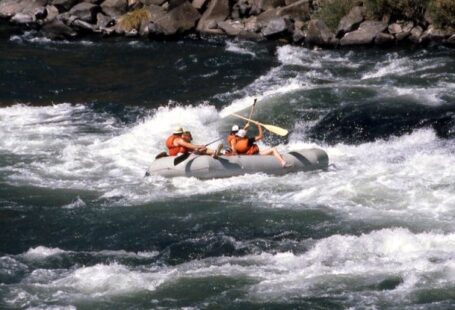Triathlon swimming requires a unique set of skills and physical demands compared to other disciplines in the sport. While training and technique play a crucial role in improving performance in the water, nutrition also plays a significant role in optimizing triathlon swim performance. By understanding the specific nutritional strategies that can benefit triathletes during the swimming portion of the race, athletes can enhance their performance and overall experience in the water.
Fueling Before the Swim
Before diving into the water for a triathlon swim, it is essential to properly fuel your body to ensure optimal performance. Consuming a balanced meal that includes carbohydrates, proteins, and fats a few hours before the race can provide the necessary energy for the swim. Carbohydrates are the body’s primary source of fuel and are crucial for endurance activities like swimming. Including complex carbohydrates such as whole grains, fruits, and vegetables can help sustain energy levels throughout the swim.
Hydration is another critical component of pre-swim nutrition. Proper hydration ensures that the body is well-prepared to tackle the physical demands of swimming. Consuming water and electrolytes before the race can help prevent dehydration and muscle cramps during the swim.
During the Swim
Unlike cycling and running, consuming food during the swim portion of a triathlon is not feasible. However, staying hydrated is still essential to maintain performance and prevent fatigue. Some triathletes choose to hydrate by taking a few sips of water during breaks in their swim strokes. Others may opt for sports drinks that provide electrolytes to replenish those lost through sweating.
Swimmers should experiment with different hydration strategies during training to determine what works best for them. Some athletes may find that a hydration pack or bottle attached to their swimsuit is convenient, while others may prefer to rely on aid stations for hydration during longer swims.
Post-Swim Recovery
After completing the swim portion of a triathlon, it is crucial to focus on post-swim recovery to prepare for the remaining segments of the race. Proper nutrition plays a vital role in facilitating recovery and replenishing energy stores. Consuming a balanced meal that includes carbohydrates and proteins within 30 minutes to an hour after the swim can help kickstart the recovery process.
Carbohydrates are essential for replenishing glycogen stores, while protein aids in muscle repair and growth. Including foods like lean meats, fish, eggs, and dairy products can provide the necessary nutrients for post-swim recovery. Additionally, hydrating with water or a sports drink can help replace fluids lost during the swim.
Optimizing Performance Through Nutrition
In addition to fueling before, during, and after the swim, there are other nutritional strategies that triathletes can employ to optimize performance in the water. Properly timing meals and snacks to avoid gastrointestinal distress during the swim is crucial. Eating a light meal or snack 1-2 hours before the race can help prevent stomach discomfort while providing the necessary energy for the swim.
Furthermore, incorporating a variety of nutrient-dense foods into your diet can help ensure that you are meeting your body’s nutritional needs for optimal performance. Fruits, vegetables, whole grains, lean proteins, and healthy fats are all important components of a well-rounded diet for triathletes.
Conclusion: Fine-Tuning Your Nutrition Strategy
Fine-tuning your nutrition strategy for triathlon swimming can have a significant impact on your performance in the water. By fueling your body with the right nutrients before, during, and after the swim, you can enhance your endurance, speed, and overall enjoyment of the sport. Experimenting with different foods, hydration methods, and meal timing can help you determine what works best for your body and optimize your performance on race day. Remember that nutrition is a key component of successful triathlon training, and by prioritizing your dietary intake, you can take your swimming performance to the next level.





